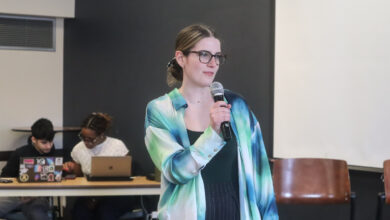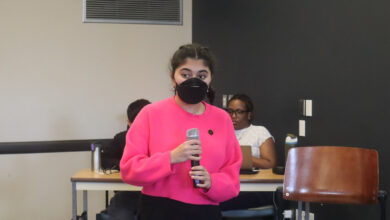 Supplied
SuppliedThe Spring 2019 Alberta provincial election is shaping up to be one of the spiciest ones yet.
Alleged human being Jason Kenney, leader of the United Conservative Party, is the favourite to win. Rachel Notley is barely clinging to Albertan support, staying true to her party’s centre-left values while running one of the most conservative provinces in the country. The centrist Alberta Party is gaining ground in place of the basically-dead Liberals. And now, in the absence of the Wildrose Party, the Alberta Advantage Party (AAP) has risen from its ashes.
Headed by Wildrose Party founding member Marilyn Burns, the AAP has promised to provide an alternative option for a wide range of voters on the ballot this year. Their platform echoes themes of centre-right politics: greater economic independence from Ottawa, more funding for the agricultural and healthcare industries, and an overhaul of several controversial NDP policies like the carbon tax.
There’s also a strong emphasis on accountability and grassroots politics. Any five party members can bring forth a policy proposal, and the party wants to make it easier for the general population to order a referendum on significant public issues.
Burns herself is hardworking and charismatic. She said she personally gathered 2000 of the 8600 signatures needed to register her party, which is no mean feat. I have respect for her as a skilled and experienced politician, and I find the AAP’s ideas intriguing. While I’d love to consider them as possible advocates for my interests as an Albertan, my interests aren’t the only ones worth paying attention to. Some of the AAP’s postsecondary education policies make me wonder how well they’d advocate for some of my fellow students.
As previously mentioned, the AAP has a strong pro-Alberta bent, and this is reflected in their policies on Albertan university admissions and funding. Under their policies, Alberta residents would be given priority for postsecondary admission and funding, and paying fees to support student associations like our very own Students’ Union would become optional.
On the surface, this looks great for Albertan locals like myself: we would have better odds of getting into university, and we could also save money and gain financial support. But a drop in numbers of international and out of province students, alongside making compulsory fees optional, would result in a net loss for universities. How that gap would be made up isn’t all that clear.
International students make up about 20 per cent of the student body, but can be charged more the four times the amount that domestic students can for the same instruction, due to the government subsidizing education and regulating tuition hikes for domestic students. Both international and out of province students are more likely to live in residence, meaning they’re likely paying another several thousand dollars to their chosen university, on top of their tuition.
Replacing international and out of province students with Alberta residents would lead to a loss of funds for the U of A, which could make existing problems like international student tuition hikes and spending cuts even worse than they already are. If students were also able to stop funding their student associations… we’d really be in trouble.
Our SU and other student associations are far from perfect, but they’re there for a reason. The SU’s job is to be the bridge between students and the organizations that make decisions for us, whether that be U of A governance, the city of Edmonton, or the government of Alberta. Other student associations on campus, like our various Residence Associations and the Campus Food Bank, provide vital supports for students who may be struggling. In order to function to the best of their abilities, these organizations need stable and predictable funding. If that funding is lost, the student body as a whole will suffer the consequences.
The AAP has expressed interest in increased funding for internships and apprenticeships in the trades and technical work, as well as putting more money into university research projects, but this won’t make up for smaller overall budgets or a weakened civil society. Since they seem intent on decreasing mandatory fees for students, as well as the personal taxes of Albertans across the board, one has to wonder where the money for these programs will be coming from.
As of yet, the AAP hasn’t had the chance to answer direct questions from the public about their policies. When they do, I hope some of these issues get cleared up — if not, university students should think twice before putting their trust in the AAP come spring.




